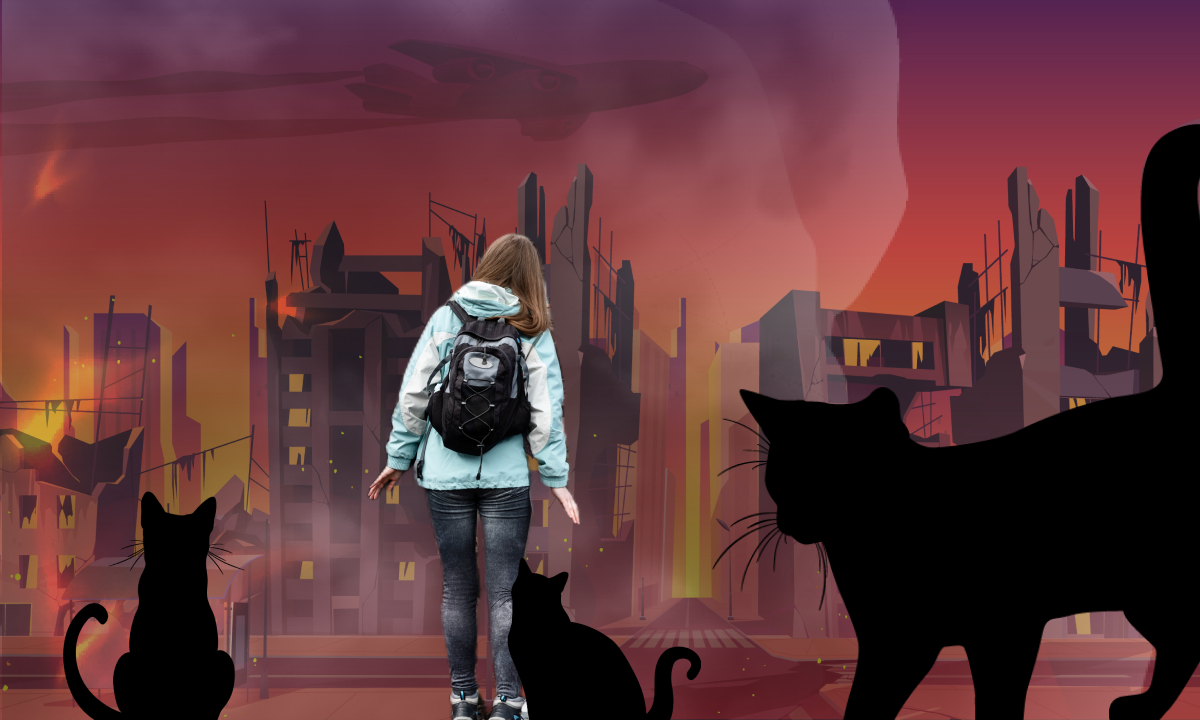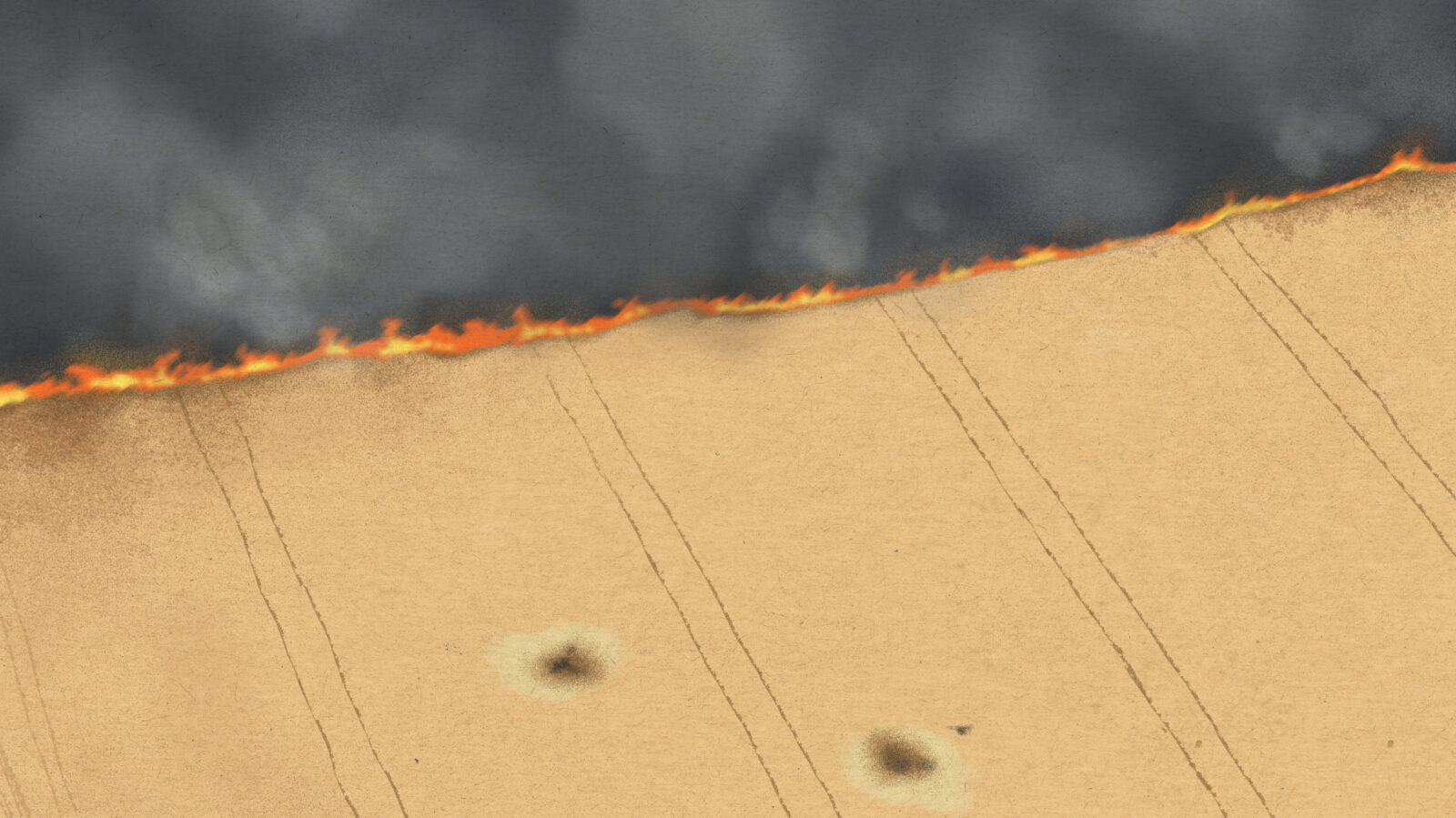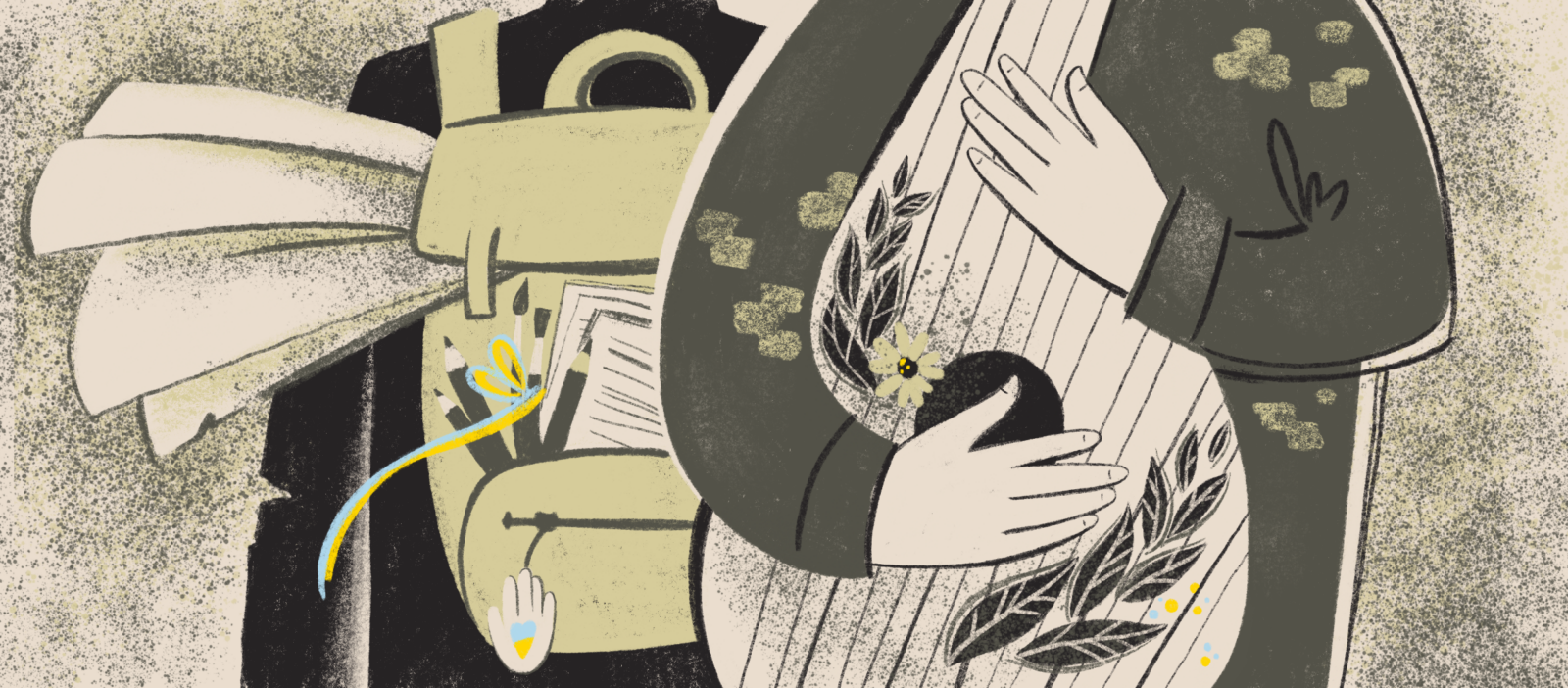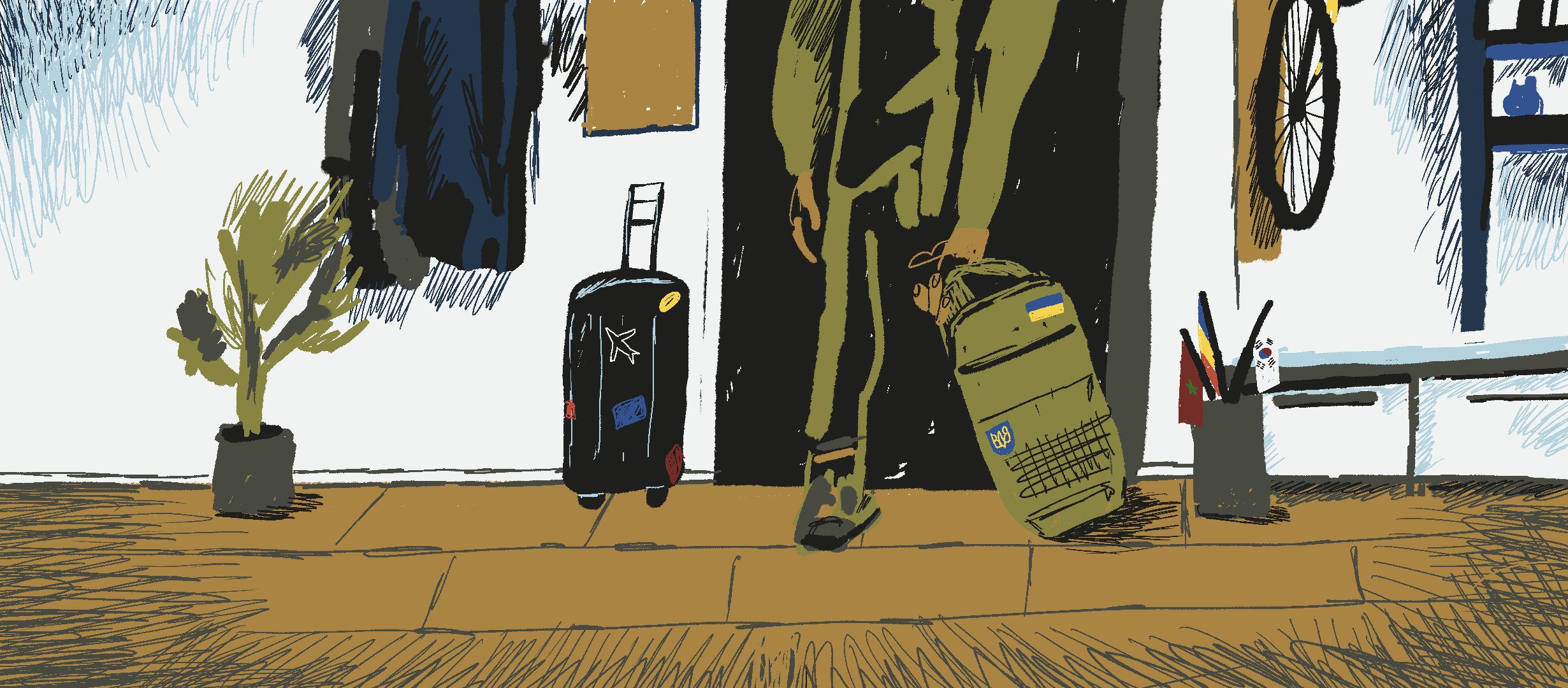Illustrated by Oleksandra Fedarkova
A bloodied young woman with a small child in her arms: these photos of the 33-year-old Yulia Matvienko from Chernihiv have been shared widely on social media. Now there is a huge hole from a Russian air bomb under her windows in a 9-floor panel building in the city center. Yulia remembers the explosion and how her second-floor apartment began to fall on her and her children. At that moment she was going to the kitchen, and her three daughters—a 14-months-old, a 4-year-old and a 7-year-old—were sitting on a blanket in the hallway, the safest place in the apartment by the rule of two walls.
“Everything was falling and crumbling. The children also ended up under the rubble, I started to pull them out, took them outside,” recalls Yulia. “I didn’t understand anything, didn’t feel anything, even pain, although I was bleeding heavily. It was scary.”

Yulia’s husband is in the military. When Russia launched the invasion, he called and told Yulia to go to stay with his mother outside the city. He said it was unknown what would happen next, but at least there was food, water, and family. Yulia and her daughters lived outside the city for a week, hiding in their neighbors’ basement during shelling.
“In 2014, I experienced it all in Severodonetsk, in the Luhansk Region. The shelling, and the noise of planes dropping bombs, and bomb shelters and cold basements, and the lack of light, water and communication, and the lack of food—all this fear. Now everything is a hundred times worse.”
When Russian troops began approaching the outskirts of the city, Yulia decided that Chernihiv would be safer and returned home. The bomb fell in just a couple of hours.
“My husband drove there the next day, shot a video. Our second floor, all our windows and our balcony, it all was demolished. 80% of our apartment was destroyed. Everything was covered in broken glass, all things were destroyed.”
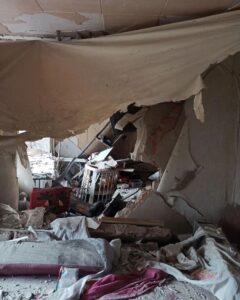
The Ukrainian military took the family to a children’s hospital. Fortunately, Yulia’s daughters got out of it without a scratch, and their aunt took them in. Yulia had a closed head injury and concussion, she had lost a lot of blood. Her ear, face, and a large cut on her arm were stitched up. And she was transferred to a regional hospital.
On the same day, the Russian army aimed at a school. Those who survived found themselves in the same ward as Yulia.
“The girls’ faces were completely stitched up, their eyes couldn’t see, some of them needed to have their eye lens replaced, some even had an eye removed, there were many different injuries,” says Yulia. “They thought it would be safer in a school basement. Well, the school was completely demolished.”
Yulia was supposed to stay at the hospital for two or three weeks, but she was discharged in 7 days: there was too little room and too many injured. For some time, she has been living with her husband’s sister—without communication, water, gas or light. Later, her husband took her and their daughters to the Lviv Region. Yulia was only able to take her documents and her phone with her.
“It’s horrible in Chernihiv. A bomb has already hit the hospital where I was staying. People who were standing in line to buy bread were shot. It’s scary there. My youngest, whenever she heard explosions, would immediately start crying and shouting (we were once kicked out of the basement outside the city because of that). She’s doing okay now, maybe she doesn’t remember. And my older daughters are very scared even now.”
As we are talking, I hear her older daughter, Nika, asking her mother to close the curtains. “She’s used to blackouts,” explains Yulia. Nika is afraid of everything. She is afraid of a car passing by their house on the street—she runs into the hallway and hides. She is afraid of walking in the street—in 5 minutes she starts crying and drags her mother home. She is afraid of sleeping in a bed and lies down on a rug in the hallway. And at night, she wakes up hysterical. Every day, Yulia explains to her that they are safe. She has not decided yet what to do next. She says it is equally scary to live with air raid sirens and to go abroad.
“I’ve lost everything, I have a badly stitched ear, scars on my face, but I have a feeling that everything should be fine. I’ve become calmer, I have faith in a bright future. I don’t even know where I’ve got this positivity,” says Yulia. “Sometimes the unknown scares me. It’s sad that I live with strangers, not at home. I dream that all of this will end. I dream that my husband will come home, take me with him, and we will return to Chernihiv, rebuild the city, find a new house and live as we lived before, normally.”
Translated by Marta Yaremchuk






